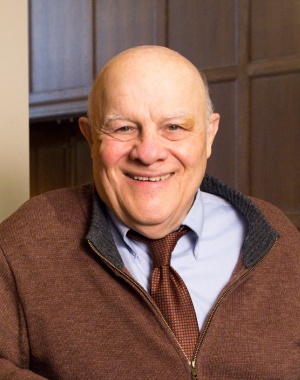Hundreds of students will tackle a deadly outbreak during a very timely NASPAA-Batten Student Simulation Competition
On February 27, the Weiser Diplomacy Center at the Gerald R. Ford School of Public Policy at University of Michigan and the Cornell Institute for Public Affairs at Cornell University will virtually host more than 90 graduate students from universities around the globe who will compete in a real-time simulation to stop the next infectious disease outbreak during the annual NASPAA-Batten Student Simulation Competition. Developed by experts at the Batten School’s Center for Leadership Simulation and Gaming (CLSG) and backed by real-world data, the simulation places students in leadership roles within a time-sensitive, fast-paced environment where they must work together to minimize the impact of a deadly infectious disease. The competition—a partnership between the University of Virginia Frank Batten School of Leadership and Public Policy and the Network of Schools of Public Policy, Affairs, and Administration (NASPAA)—annually connects public policy students from a vast network of universities worldwide through simulated gameplay.
“We’ve extensively updated our simulation to reflect the public health and economic crises brought on by COVID-19,” said CLSG Acting Manager Adam Roux. “It’s a great opportunity for aspiring policymakers to test their leadership, critical thinking, and communication skills against a scenario like the one we are all living through. Experiential learning tools such as the Pandemic Game can help bridge classroom learning and real-world experience, training future leaders to better navigate challenging situations.”
In the day-long event, students will role-play as leaders of one of four fictional countries, working with teammates from around the world to navigate difficult policy decisions and their outcomes. Their decisions will impact not only their domestic mortality rates, economies, and political situations, but also regional stability. Will students close international borders, mandate nationwide lockdowns, or develop an effective, trusted vaccine? Will their actions stay in budget, maintain rule of law, and--most importantly--save lives? Teams will be evaluated on simulation scores, negotiation skills, and presentations made to judges. Finalists will compete in a global "All Star" round navigating through the next iteration of the simulation.
“Simulation-based learning is incredibly valuable, as it applies theory to practice, and goes beyond conventional modes of learning,” said NASPAA Simulation Education Director Supriya Golas. “Through these simulations, students can take what they’ve learned in the classrooms and apply it to simulated real-world experiences. We hope these tools will prepare students for the next major global event, whether it’s a pandemic or climate crisis.”
This is the seventh year that NASPAA has conducted the student competition and the fifth year of partnership with the Batten School’s Center for Leadership Simulation and Gaming. Thousands of students from NASPAA’s global network have participated in the competitions, each year examining a different multifaceted policy issue. For last year’s NASPAA-Batten Student Simulation Competition, the CLSG created a simulation that challenged students to implement sustainable transportation policies. For the 2019 Competition, the CLSG created a simulation in which participant teams were asked to manage a refugee influx. Following each competition, CLSG develops a version of the simulation for the classroom, which are available for free through their website. The simulations have already been used in university classrooms in Maryland, North Dakota, Texas, China, and Virginia to teach important policy concepts and give students a chance to hone skills in negotiation and critical thinking.
U-M contacts are Zuzana Wiseley and Erica Selesky.
About NASPAA: The Network of Schools of Public Policy, Affairs, and Administration or NASPAA is the global standard in public service education. It is the membership organization of graduate education programs in public policy, public affairs, public administration, and public & nonprofit management. Its over 300 members - located across the U.S. and in 24 countries around the globe - award MPA, MPP, MPAff, and similar degrees. NASPAA is the recognized global accreditor of master’s degree programs in these fields.
About the CLSG: The University of Virginia’s Center for Leadership Simulation and Gaming at the Frank Batten School of Leadership and Public Policy prepares students for public life by allowing them to test real-world solutions in a virtual environment. The CLSG designs, develops and implements cutting edge simulations and experiments to advance education in leadership and public policy; conducts rigorous leadership and public policy research using simulations and experiments; and creates a community of scholarship where faculty, researchers and students are supported in their scholarly efforts related to the methodology of simulations and experiments.
This story was written by Network of Schools of Public Policy, Affairs, and Administration.
